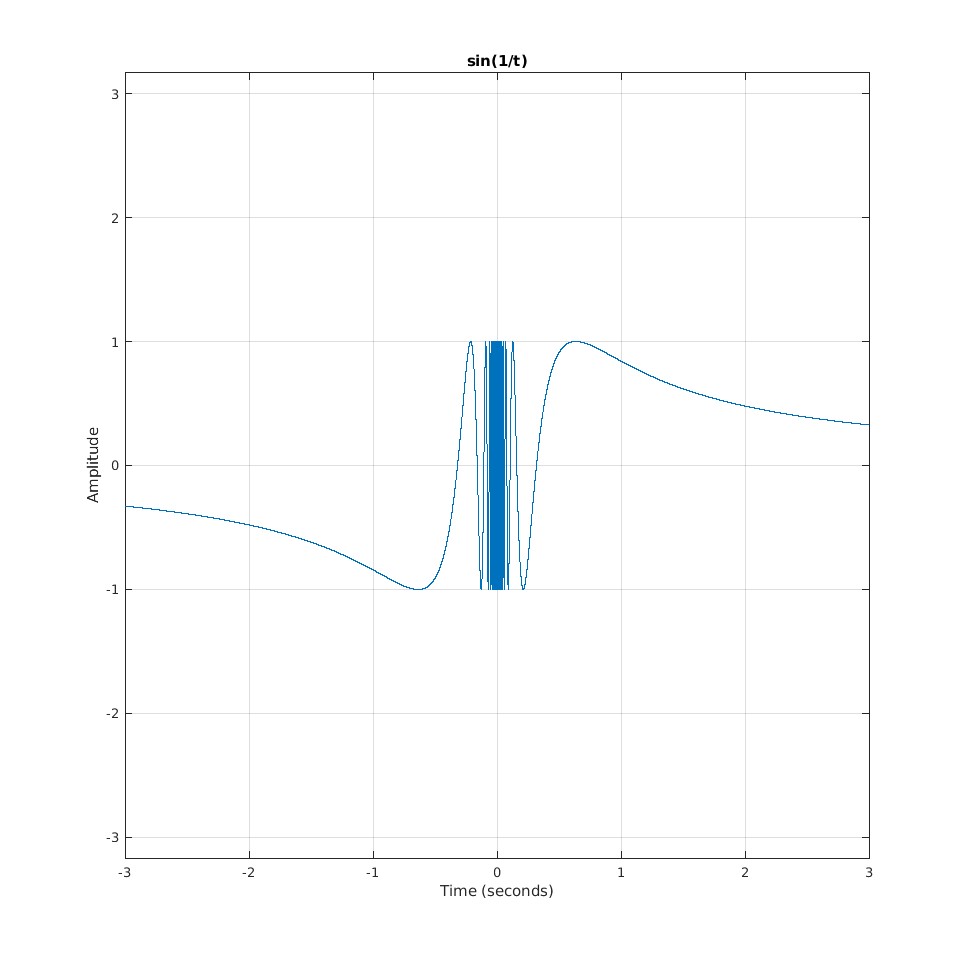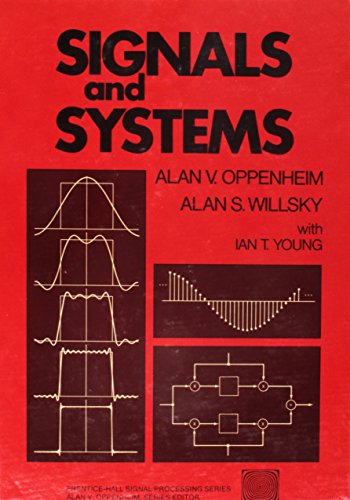Definition
The Fourier transform in continuous-time:
$$X(j\omega)=\int_{-\infty}^{\infty}x(t)e^{-j\omega t}dt$$The Fourier transform in discrete-time:
$$X(e^{j\omega})=\sum_{n=-\infty}^{\infty}x[n]e^{-j\omega n}$$- \(X(j\omega)\) is the correlation of \(x(t)\) with \(e^{j\omega t}=cos(\omega t)+jsin(\omega t)\), and \(X(e^{j\omega})\) is the correlation of \(x[t]\) with \(e^{j\omega n}=cos(\omega n)+jsin(\omega n)\).
The Fourier transform of a time signal is its correlation to a complex sinusoid with frequency \(\omega\).
Periodicity
\(X(j\omega)\) is generally not periodic, and \(X(e^{j\omega})\) is periodic with period \(2\pi\).
Conditions for Existence
Dirichlet conditions for \(X(j\omega)\):
- \(\int_{-\infty}^{\infty}|x(t)|dt\) is finite.
- Jumps in \(x(t)\) are finite and there are a finite number of jumps in a finite time interval
- There are a finite number of minima and maxima in a finite time internal.
- Example: \(sin(\frac{1}{t})\) has infinite minima and maxima in the finite interval about the origin, so its Fourier transform does not exist:

Dirichlet condition for \(X(e^{j\omega})\):
- \(\sum_{n=-\infty}^{\infty}|x[n]|\) is finite.
Any signal that can be physically produced in a lab satisfies these Dirichlet conditions.
Some Fourier Transform Pairs
Continuous Time
| \(x(t)\) | Condition | \(X(j\omega)\) |
|---|---|---|
| \(\delta(t)\) | - | 1 |
| \(rect(\frac{t}{a})\) | \(a>0\) | \(\frac{2}{\omega}sin(\frac{a\omega}{2})\) |
| \(e^{-at}u(t)\) | \(a>0\) | \(\frac{1}{a+j\omega}\) |
Discrete Time
| \(x[n]\) | Condition | \(X(e^{j\omega})\) |
|---|---|---|
| \(\delta[n]\) | - | 1 |
| \(rect[\frac{n}{2m+1}]\) | \(m\gt 0\) | \(\frac{sin(\frac{(2m+1)\omega}{2})}{sin(\frac{\omega}{2})}\) |
| \(a^{n}u[n]\) | \(-1\lt a\lt1\) | \(\frac{1}{1-ae^{-j\omega}}\) |
| 1 | - | \(2\pi \hat{\delta_{2\pi}}(\omega)\) |
| \(\frac{1}{\pi n}sin(\frac{an}{2})\) | \(0 \lt a \le 2\pi\) | \(\hat{rect_{2\pi}}\frac{w}{a}\) |
See More
-
Signals and Systems by Oppenheim, Willsky, and Young. ISBN 0-13-809731-3
